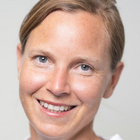The Current Column
The 2025 German Federal Election
Attention all democratic parties - the EU redefines its global role!
Koch, Svea / Niels Keijzer / Christine HackeneschThe Current Column (2025)
Bonn: German Institute of Development and Sustainability (IDOS), The Current Column of 3 February 2025
Bonn, 3 February 2025. With the controversial vote on the reorientation of migration policy, the tone and focus of the rest of the election campaign in Germany is inevitably set. It almost went unnoticed that in Brussels, on the same day, Ursula von der Leyen presented her new ‘Competitive Compass’, meant to safeguard the EU’s competitiveness and future prosperity. Key buzzwords summarising this new direction include proposals for a Clean Industrial Deal and externally, a new Economic Foreign Policy.
This new Economic Foreign Policy seeks to boost the EU’s ailing economy and diversify its supply chains to secure the necessary resources for decarbonising Europe’s economy. With the contours and exact focus of the EU’s economic foreign policy still to be determined, democratic parties in Germany need to think ahead already now to have ideas ready for common positions in Brussels in a new government. The future of the EU’s external economic relations - and with it the EU’s future global role - are too important to be lost in the noise of the election campaigns.
Others are already one step ahead. Josef Síkela, the new EU Commissioner for International Partnerships in charge of the EU's development policy, has firmly put the EU’s economic interests and the diversification of its supply chains at the centre of his mandate. This representation of the EU's development policy may sound surprising to some but logically follows policy changes made in recent years. In the wake of repeated global crises, development policy has been further integrated into the EU’s foreign policy and increasingly places European interests at its centre. Yet rather than pushing one-sided and short-term European interests, the new German government must be quorate quickly to position itself and Europe as a reliable partner for global sustainable development characterised by strong partner orientation and mutual interests.
For this to be successful, Germany needs to overcome its difficulties to present unified and strong development policy positions in Brussels. In shaping EU development policy, Germany is generally considered to punch below its weight. Other member states sometimes find German positions difficult to discern, not least because of the variety of German actors engaging in Brussels. Although Germany is to an important degree involved in co-shaping operational strategies and implementing development programmes, it often fails to identify core topics that it wants to advocate for in Brussels. Among other factors, this would require greater unity between federal ministries.
As an export-oriented and global development minded nation, the next German government should pro-actively position itself on the EU’s new Economic Foreign Policy. This future policy will rely on European global market and trade policy initiatives, including contentious carbon taxation and deforestation legislation, as well as the EU’s infrastructure investment initiative Global Gateway. In Germany, Global Gateway enjoys cross-party support, largely due to expected investment opportunities for German businesses. It is also considered important to counter Chinese influence in developing countries.
However, the EU has yet to prove how and when Global Gateway will deliver tangible results for itself and its partner countries. Though commonly portrayed as focusing on sustainability and on democratic values, its promised economic gains have so far received most attention in EU policy discussions. Both on moral and arguably legal grounds due to the use of the EU's development cooperation budget, civil society organisations have denounced its overall thrust. Recent research, moreover, shows that trade benefits deriving from Global Gateway for the EU will remain small if the projects fail to drive economic growth in partner countries. The EU and Germany should therefore be less concerned about competing with China and more about ensuring that Global Gateway delivers results that are aligned with partners’ national development plans and advance social and environmental objectives. Promoting global sustainable development is in the EU’s economic interest and should thus be at the core of its economic foreign policy.
With the UN Conference on Financing for Development taking place on European soil in Sevilla in July this year and discussions on the future of the 2030 Agenda looming on the horizon, the world evidently does not just look at Europe for the size of its investment portfolio and the pursuit of its economic interests. Rather, the EU’s global role will be judged for the value of its ideas and proposals on promoting common interests through the sustainable and equitable provision of global public goods, even more so due to the expected US non-cooperation on these issues under the Trump presidency. Regardless of what the election results will be, the next German government will need to be fast in finding a common position on the EU’s global role. It will need to look beyond its own bilateral development priorities and pro-actively shape the EU’s economic foreign policy to ensure its long-term focus on sustainable development.




